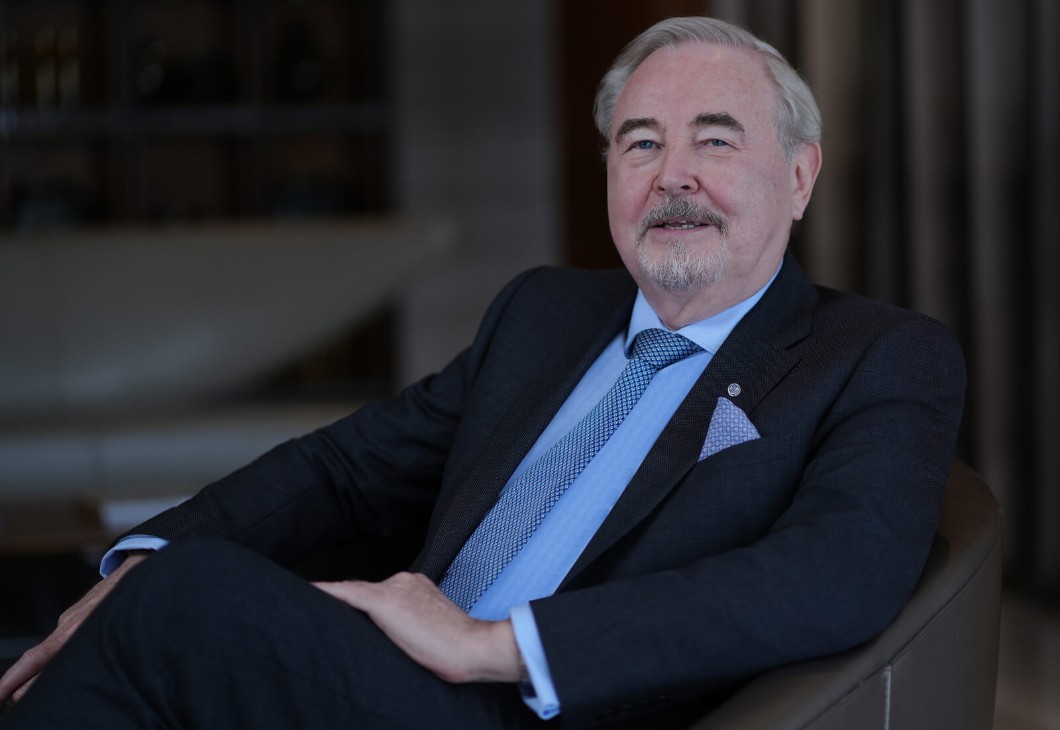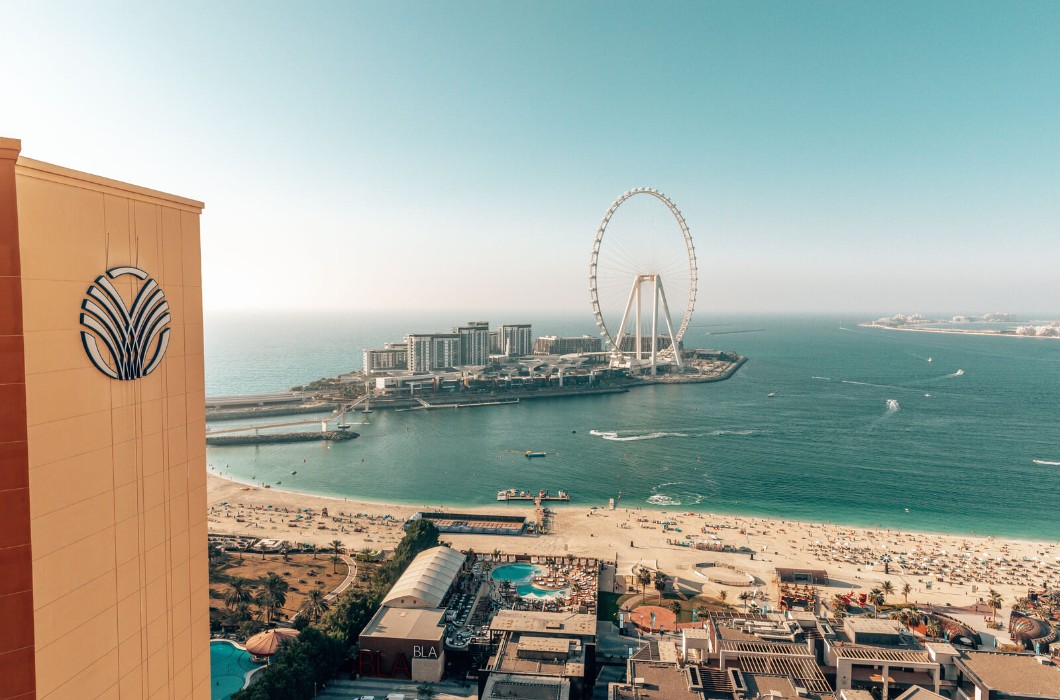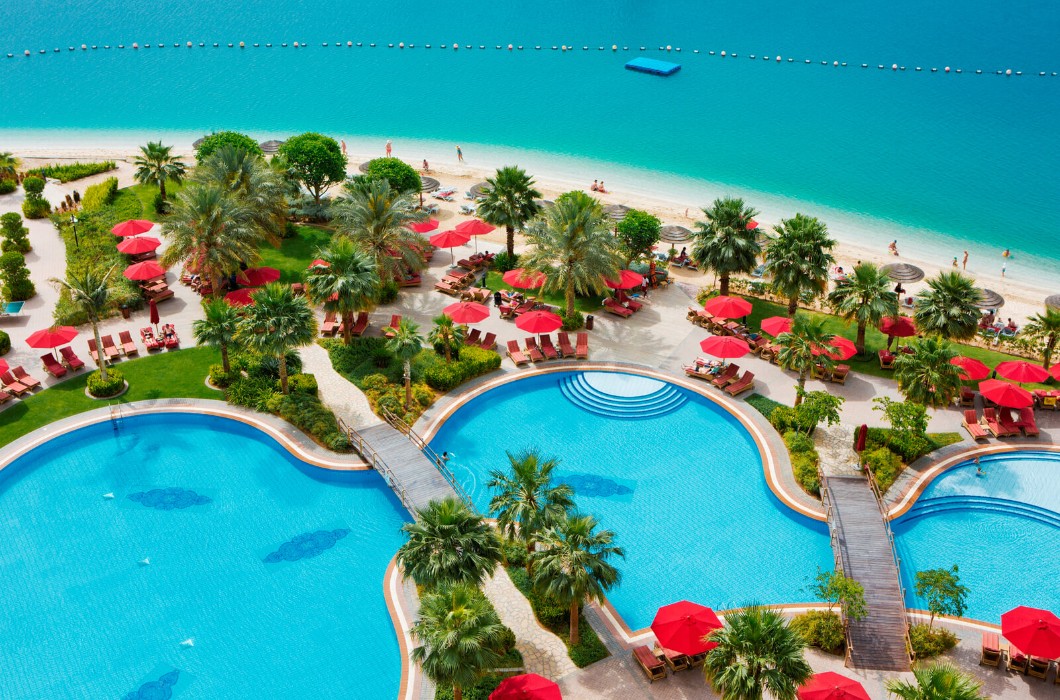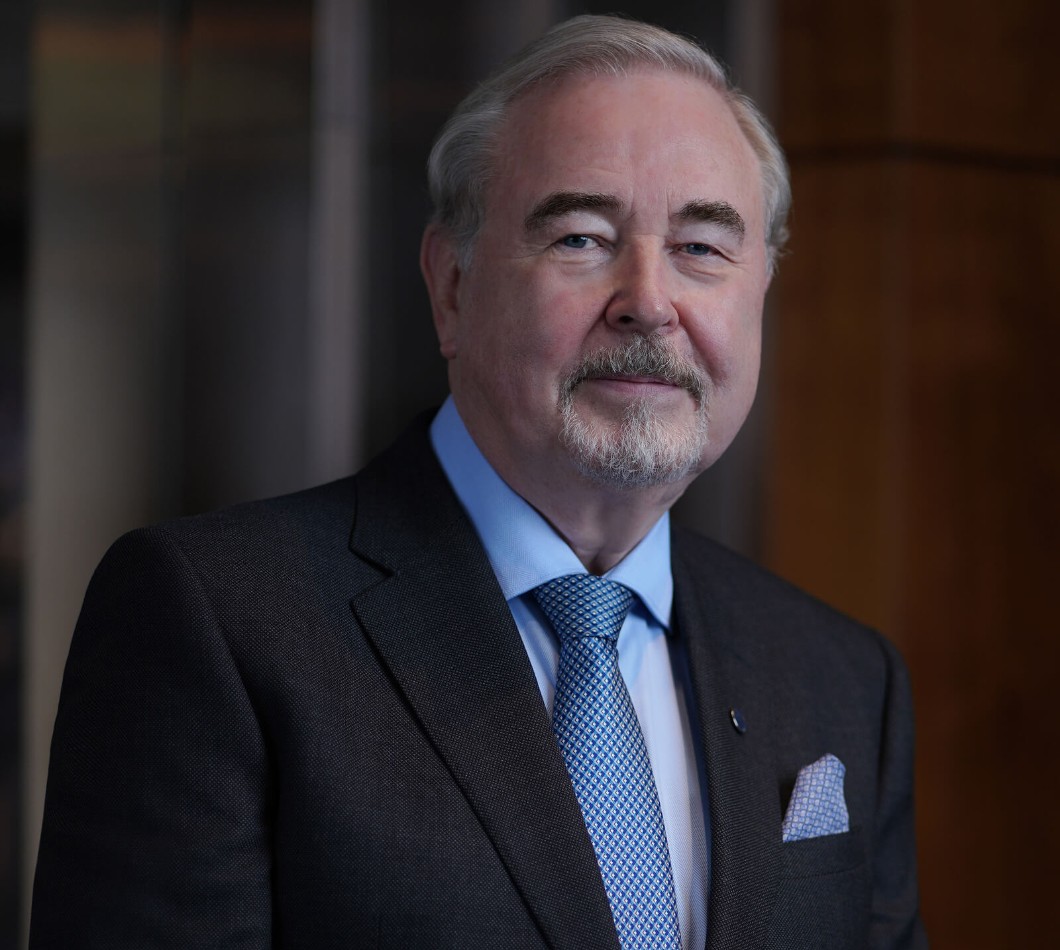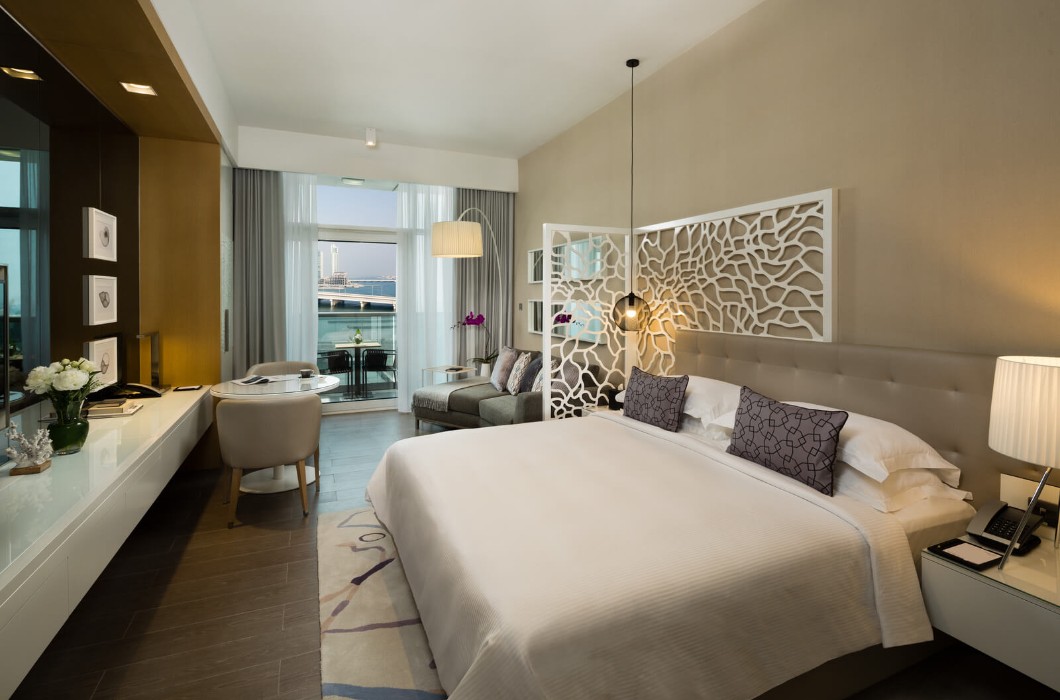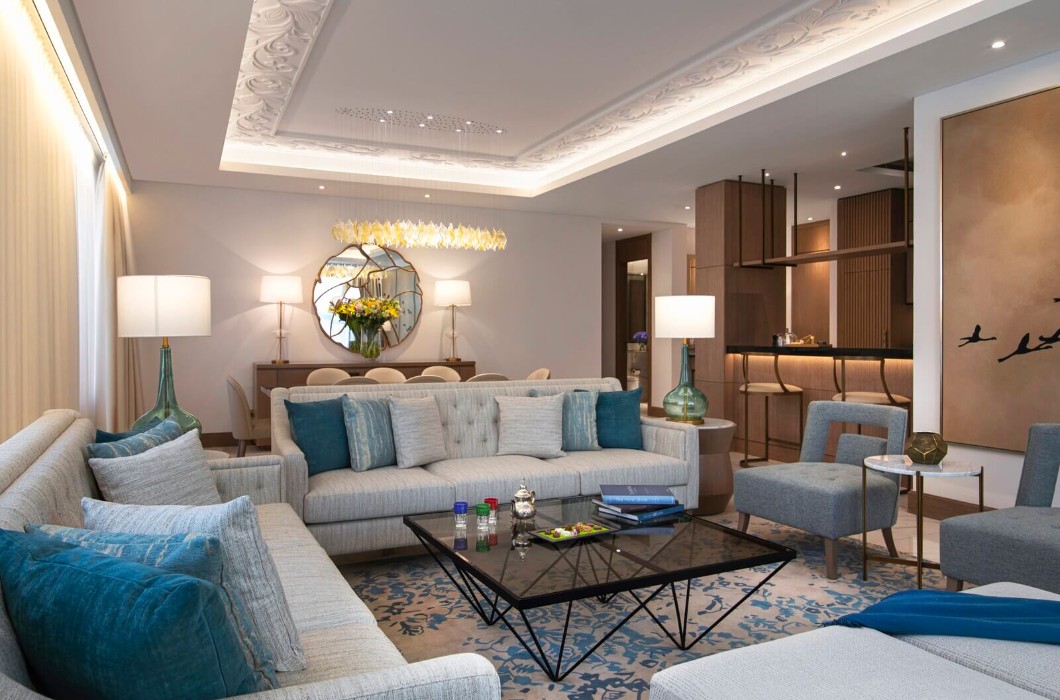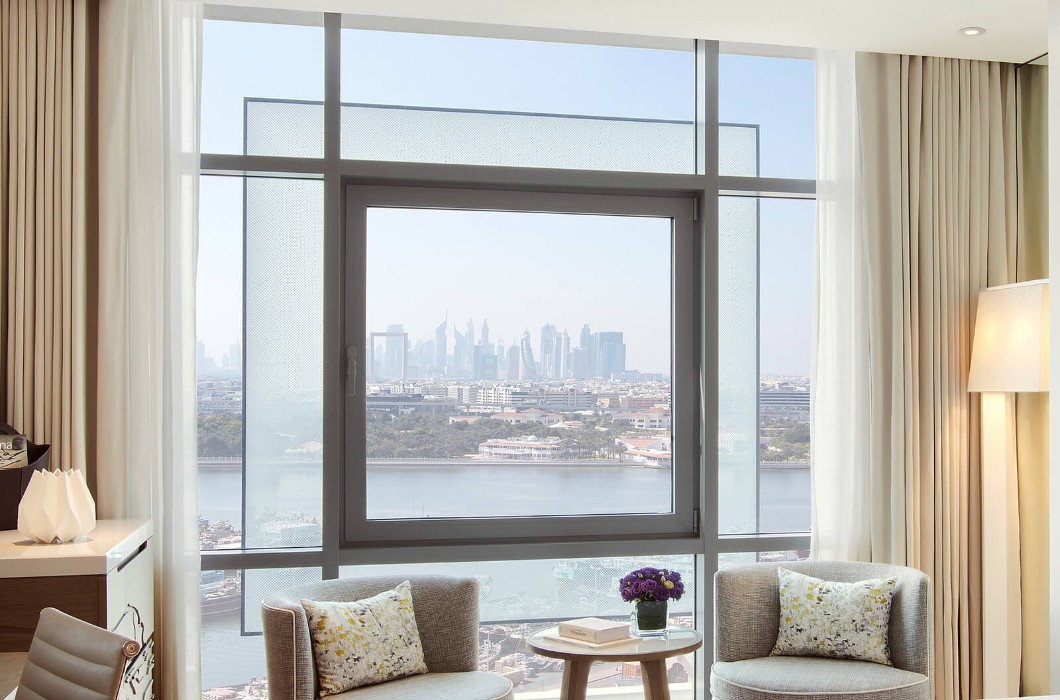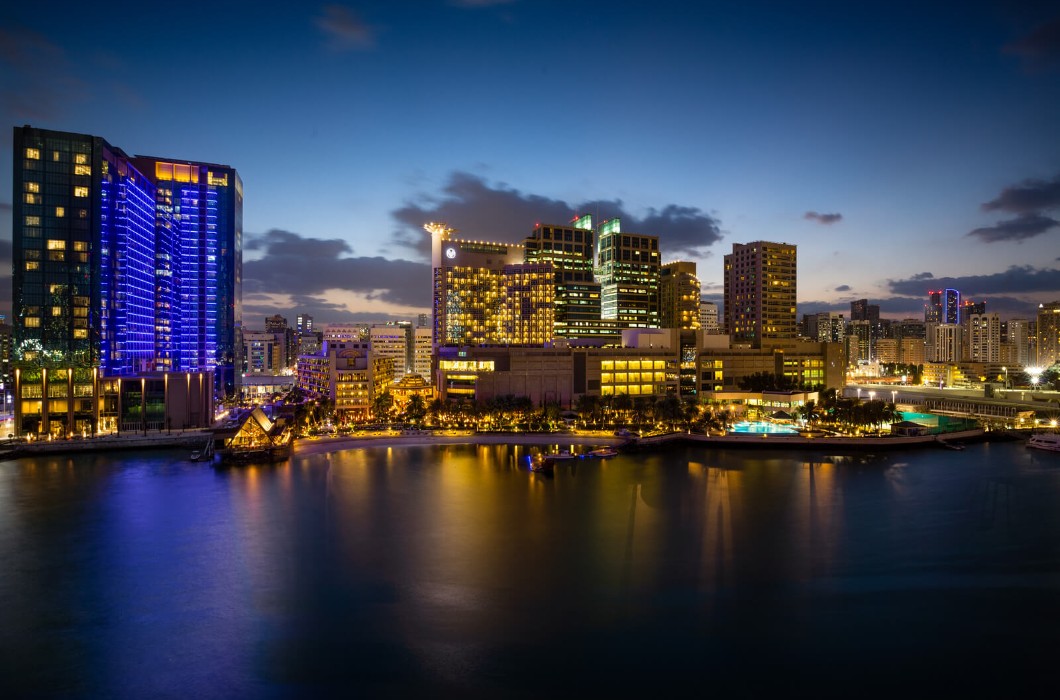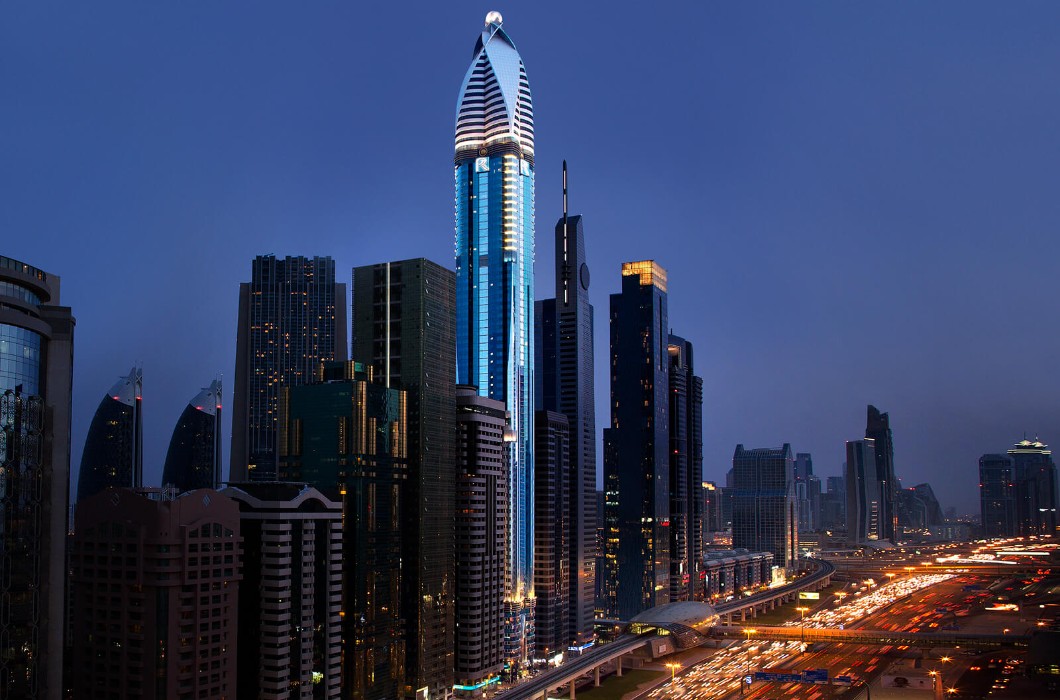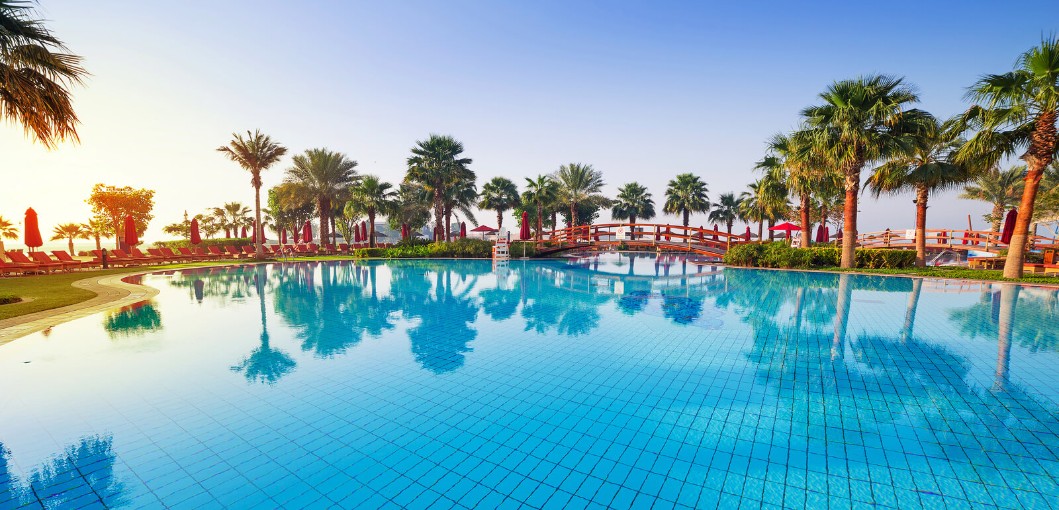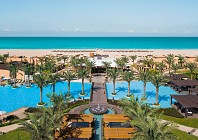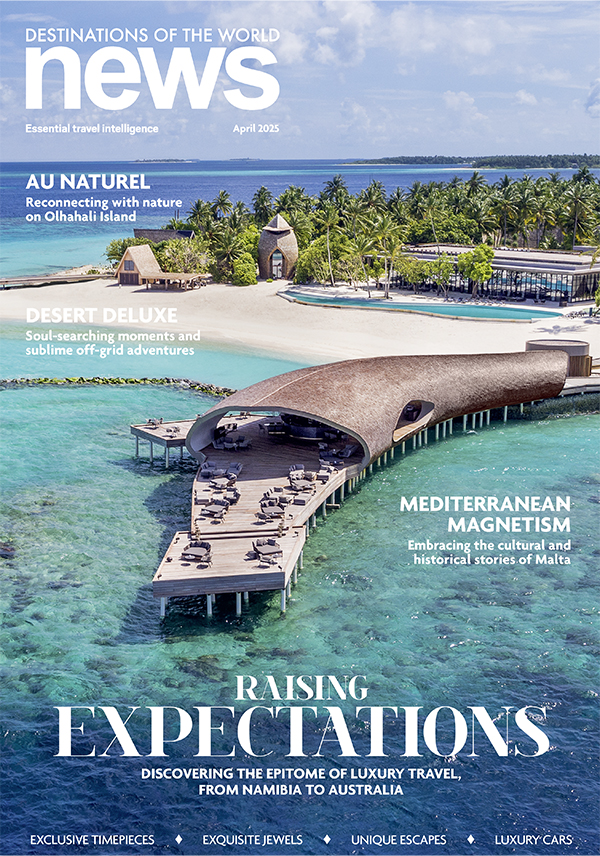After travelling the world in a career that’s taken him from Singapore to Vancouver, Rotana CEO Philip Barnes is back in the Middle East at the helm of the region’s beloved homegrown hotel company. One thing he’s learned along the way: hospitality is all about people. After just eight weeks in his new role, the jet-setting, guitar-collecting hotelier is ready to take on the world.
How did you get into the hospitality business?
When I was at boarding school in Sussex, a little hotel opened in the village and I got a summer job there, doing everything from serving in the restaurant to manning the front desk and answering the phone. I loved the diversity of it and the fact that every day is different. And that the whole focus was taking care of guests. I loved that whole service sentiment and it’s been with me ever since.
Congratulations on the new role, what have you been up to?
As with any move, the first few weeks were all about getting to know the people. Otherwise, you’re just dealing with bricks and mortar. Then I visited around 25 of our hotels and spent some time getting to know what’s working, where we need to focus and where the opportunities lay ahead. It sounds easy, but actually I feel like I’m drinking from a firehose most days!
What attracted you to Rotana?
When I was approached for this role, I knew Rotana from my previous time in the Middle East and I’d met Rotana Vice Chairman and Co-Founder, Selim El Zyr previously. I spent a couple of days in Abu Dhabi and the conversations revolved around people, quality and excellence. I knew that Rotana was the only homegrown brand of consequence in the region, and the more I drilled into it, the more I saw that it had all the right components of being a great organisation. I have this philosophy that getting a job is easy, but getting a job that you are passionate about is what matters.
What sets Rotana apart from other international brands?
During Ramadan, I went to many iftars in our hotels and looked at what they were doing and how they were doing it. It wasn’t just an event; it was a whole cultural experience. We have that cultural understanding in ways that big international brands don’t. When you look at the culture and you look at what it is you’re setting out to do, this is the brand of the region, because it’s loved and has been a part of people’s lives here for 30 years.
How do you go about infusing Middle Eastern culture into the guest experience at a Rotana property?
It’s that whole understanding of local culture, be it the Arabic coffee on arrival, the warm greeting or something as simple as the room amenities and the combination of the fruit, sweets, dates and so on. It’s also the thought process behind those gestures. Everywhere I’ve worked in the world, you have to understand local culture. When I first worked in Asia, understanding the Singaporean culture was equally as important as understanding the business world. That’s true here too.
Can you tell us about some of the sustainability initiatives at Rotana?
It’s great to see such a high level of commitment here and the number of different initiatives that are being rolled out: clean technologies, the reduction of waste and the whole thought process behind it. We’ve moved away from single-use plastics and we’re moving into bottled water facilities in as many hotels as we can. And all of these initiatives are not designed to cut costs, they’re designed to actually make those things happen. That's what's really important at the end of the day.
How important it is to balance technological evolution with
a sense of personal human contact?
To me, it’s hugely important. One of the most important roles in a hotel, in my mind, is the doorman. Good doormen make you feel like the most important person on the planet and they’re the first person you meet at the hotel. That’s where it all begins. So balancing that out with technology is key. Because if you take away the human component, you’ve just got bricks and mortar.
What other big-picture trends are you looking at?
One that’s really coming into play is health and wellness. We have a couple of people on our team who are highly engaged in this whole process, looking at nutrition and other programmes we can introduce into our hotels, where it's applicable. We're in the process of asking ourselves how we make that a part of the guest experience whereby people want to embrace it. Because it's important to understand what the guest really wants.
What are some of your passions outside of work?
I have a home in London and that’s primarily because my passions are the theatre and music. If you’ve never been to the Royal Albert Hall in London, you’ve missed the most magical experience in the world. I’m coming back to England in May because my kids bought me tickets to Bryan Adams at the Royal Albert Hall for my birthday. And when I'm on the plane (and the WiFi isn't working) I also love to read.
What’s your guilty pleasure?
I hate to admit this but I have around 11 or 12 guitars. One of the last things I did before leaving LA was buy a Gibson Hummingbird, which is probably the most expensive guitar I own. I love the sound; it’s got a depth and a warmth to it. (Editor's note: Philip bought his "first real six-string" at Carrefour in Dubai for $100.) I’m also now getting into vinyl and listening to a lot of old stuff again. The first time I played vinyl to my eldest son, who is 31 this year, he couldn’t believe the difference in the sound.
What does ‘luxury’ mean to you?
Luxury to me is all about attention to detail. That’s first and foremost. But it’s also about the thought process that goes into what you’re doing. It’s the warmth of the welcome. It’s the recognition and understanding of you as an individual. Those are the things that to me really matter. I referenced the doorman earlier. When I was at The Savoy, I’d see regular guests get out of the cab and give our wonderful doorman Tony a hug. Because they would be coming home. That, to me, is luxury.





